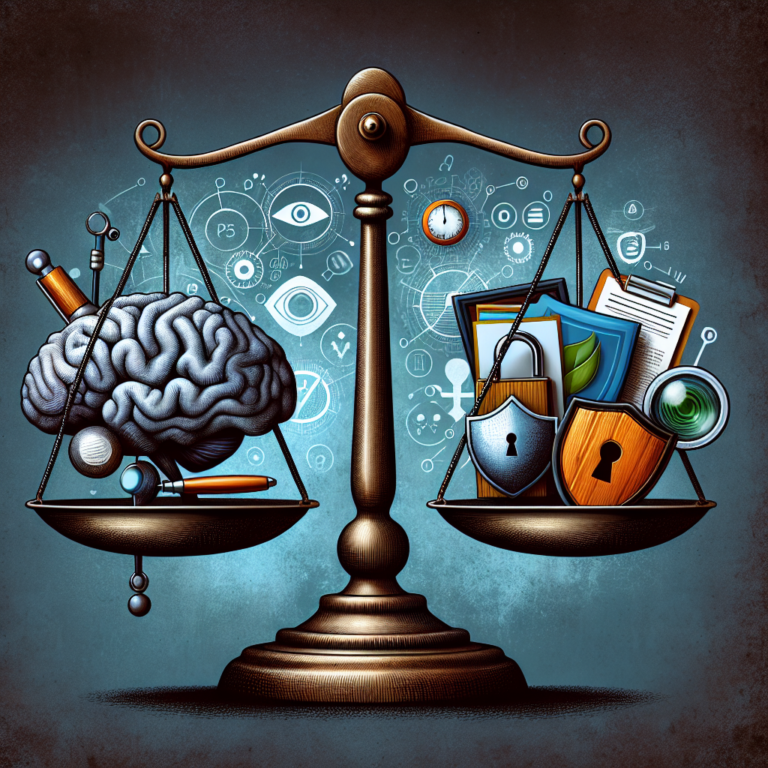
Introduction
In a world that moves at breakneck speed, where distractions are abundant and stress is the norm, the idea of “Connecting with Yourself” becomes not merely a suggestion but an essential lifeline. Understanding the importance of self-awareness in emotional regulation can transform how you interact with yourself and others. Imagine if, instead of reacting impulsively to stressors, you could pause, reflect, and respond thoughtfully. This capability doesn’t just lead to a better emotional state; it can enhance your relationships, career, and overall quality of life. This article delves deep into how connecting with yourself through self-awareness can serve as the foundation for emotional regulation, presenting unique insights and practical applications along the way.
Understanding Self-Awareness
What is Self-Awareness?
Self-awareness is more than just a buzzword; it’s the ability to recognize and understand your thoughts, feelings, and behaviors. It acts as the foundation upon which emotional intelligence is built. According to psychologists, self-awareness consists of two key components: private self-awareness (how you see yourself) and public self-awareness (how others see you). Both aspects interconnect and play crucial roles in emotional regulation, affecting everything from interpersonal relationships to coping strategies.
The Importance of Self-Awareness in Emotional Regulation
Emotional regulation involves managing your emotional responses to various situations. It is crucial for mental health and well-being. Self-awareness acts as the guiding compass that helps you navigate the emotional terrain of your life. By connecting with yourself, you can better identify triggers, process emotions, and implement effective coping mechanisms.
Self-Awareness and Its Connection to Emotional Regulation
The Neuroscience Behind Self-Awareness
Understanding the brain’s role in developing self-awareness provides deeper insights into emotional regulation. The prefrontal cortex, the region responsible for decision-making and social behavior, plays a significant role. Studies have shown that people with heightened self-awareness often exhibit greater activity in this part of the brain, leading to improved emotional control.
| Brain Region | Function | Role in Self-Awareness |
|---|---|---|
| Prefrontal Cortex | Decision-making | Essential for emotional regulation |
| Amygdala | Emotional responses | High activity correlates with stress |
| Insula | Emotional awareness | Processes the emotions we feel |
Case Study: The Corporate Executive
Take the case of Sarah, a corporate executive who struggled with stress-related outbursts in the workplace. By engaging in mindfulness practices that enhanced her self-awareness, she began to recognize her emotional triggers. Instead of reacting impulsively, she started to pause and assess her feelings before responding to conflicts. As a result, her colleagues reported improved interactions, and Sarah’s self-confidence soared. This real-world application emphasizes that connecting with yourself can lead to significant improvements in emotional regulation and interpersonal dynamics.
Practical Steps to Enhance Self-Awareness
Journaling: A Gateway to Self-Understanding
One powerful method to develop self-awareness is journaling. Writing down feelings and thoughts not only clarifies emotions but can also highlight patterns in behavior. Whether it’s daily reflections or emotional check-ins, journaling can provide valuable insights into your emotional landscape.
Mindfulness and Meditation
Mindfulness practices encourage present-moment awareness, allowing you to observe your thoughts and feelings without judgment. These practices can include:
- Breath work: Focus on your breath to ground yourself in the present.
- Body scans: Pay attention to various body parts and any sensations you feel.
Integrating mindfulness into daily routines can profoundly impact your emotional regulation.
Case Study: The College Student
Consider the story of Mike, a college student battling anxiety. After encountering overwhelming stress during exam seasons, he turned to mindfulness meditation. Through consistent practice, Mike developed heightened self-awareness, recognizing when anxiety began to set in. Consequently, he employed emotional regulation tactics such as deep breathing and positive affirmations, ultimately enhancing his academic performance and reducing anxiety levels.
The Role of Self-Awareness in Relationships
Improving Communication Skills
Strong self-awareness can lead to better emotional regulation, which is vital in fulfilling communication within relationships. When you understand your emotions, you can articulate them more clearly to others.
Case Study: The Couple in Therapy
Emily and Jake frequently found themselves in arguments that escalated quickly. Through couples therapy focused on self-awareness, they learned to express their feelings without blame, increasing empathy and understanding. By connecting with themselves and each other, they could regulate their emotional responses, leading to healthier interactions and a stronger relationship.
Self-Awareness and Emotional Resilience
The Link Between Self-Awareness and Resilience
Resilience is the capacity to recover from difficulties. A high level of self-awareness enhances emotional resilience by helping you adapt when faced with challenges. Recognizing feelings as they arise allows for better coping strategies.
Strategies for Building Resilience
- Practice Self-Compassion: Be kind to yourself during failures.
- Acknowledge Your Feelings: Avoid suppressing emotions.
- Stay Connected: Maintain a support network for guidance and interaction.
Case Study: The Business Owner
Alex, a business owner whose company faced setbacks, developed his emotional resilience by enhancing his self-awareness. By practicing self-reflection and leaning on mentors, he became more adept at managing his emotions and making rational decisions, even during stressful times.
Conclusion
Connecting with yourself is not just an introspective journey; it is crucial for emotional regulation and for improving interpersonal relationships, resilience, and quality of life. The importance of self-awareness cannot be overstated, as it serves as a guiding compass for navigating life’s challenges. By implementing strategies such as journaling, mindfulness, and open communication, you can develop a deeper understanding of your emotions, paving the way for a more balanced and fulfilling life.
As you embark on this journey of self-discovery, remember that self-awareness is an evolving process. Each step you take not only enhances your emotional regulation but also enriches your connections with others. So take a deep breath, reflect, and embrace the transformative power of connecting with yourself today!
FAQs
1. What is self-awareness?
Self-awareness is the capacity to recognize and understand your thoughts, feelings, and behaviors.
2. How does self-awareness affect emotional regulation?
It allows you to identify emotional triggers and manage your responses more effectively.
3. Can mindfulness improve self-awareness?
Yes, mindfulness practices encourage present-moment awareness, enhancing emotional recognition and regulation.
4. How can journaling help in developing self-awareness?
Journaling helps clarify thoughts and emotions, making it easier to identify behavioral patterns.
5. What are some quick tips for improving self-awareness?
- Engage in regular mindfulness practices.
- Keep a journal to reflect on your feelings.
- Seek feedback from trusted friends or family.
By understanding and implementing these concepts, you can begin your journey toward deeper self-awareness and enhanced emotional regulation, ultimately leading to a more fulfilling life.














